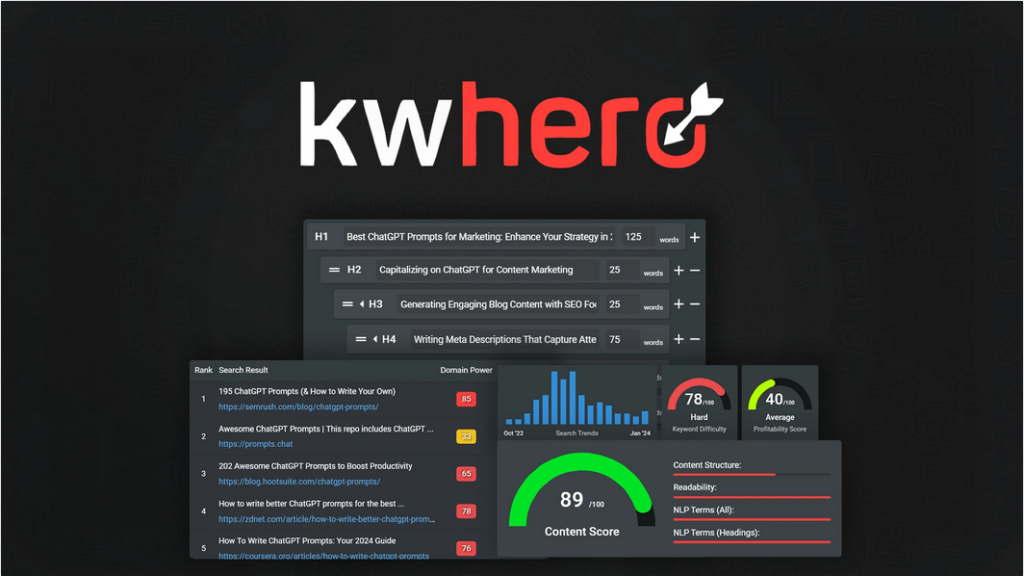Search Engine Optimization Best Practices
Search Engine Optimization best practices involve a set of techniques and strategies used to optimize websites in order to improve their visibility in search engine results pages (SERPs).
seo
The ultimate goal of SEO is to increase a website’s ranking and drive more organic traffic to it. By following good SEO practices, website owners can help their sites appear in search results when users and search engines like Google use specific search terms.
best practice
One of the key SEO best practices is to optimize your content for search intent, meaning that the content you create should tell search engines and users what your website is about and how it can help search engines. This involves including your target keyword strategically throughout your content and ensuring that your content is valuable and relevant to your audience. Additionally, using SEO tools such as Google Analytics and Google Search Console can help you track your SEO efforts and make data-driven decisions to improve your SEO.
seo work
When it comes to SEO, it’s important to focus on both on-page SEO and technical SEO tasks. On-page SEO practices involve optimizing your website’s content, meta tags, and internal linking structure to help search engines crawl and understand your site better. Technical SEO strategies, on the other hand, involve improving your website’s performance, mobile-friendliness, and security to help search engines like Google rank your site higher in search results.
optimize
Another important aspect of SEO is local SEO, which focuses on optimizing your website for local search queries. By creating content that is relevant to your local audience and optimizing your website for local search terms, you can increase your chances of appearing in Google search results when people search for products or services in your area. By following a comprehensive guide to SEO and continuously learning and implementing SEO tips, you can enhance your website’s visibility and drive more organic search traffic to it.
seo best practice , search result
Search Engine Optimization (SEO) is the process of optimizing your website to rank higher in search engine results pages (SERPs). By following best practices, you can improve your website’s visibility and drive more organic traffic. In this article, we will discuss some essential SEO best practices that every website owner should implement.
1. Keyword Research
Keyword research is a fundamental aspect of SEO that involves identifying the right keywords to target on your website. By using tools like Google Keyword Planner or SEMrush, you can find relevant keywords with high search volume and low competition. Conduct thorough research to understand your target audience’s search intent and behavior, and create a comprehensive list of keywords to optimize your content effectively.
- Utilize long-tail keywords to target specific search queries.
- Monitor keyword performance and make adjustments based on trends and changes in search behavior.
- Consider user intent and create content that aligns with the keywords you are targeting to improve relevance and engagement.
read about 10 Cutting-Edge AI Optimization Tools for 2024 Revenue Growth
2. On-Page SEO
On-page SEO focuses on optimizing individual pages on your website to enhance their search engine ranking. This includes optimizing meta titles, descriptions, headings, and content for target keywords. Ensure that your content is well-structured, informative, and relevant to the search queries of your target audience. Incorporate internal links to improve website navigation and user experience.
- Conduct a thorough audit of your website’s on-page elements and make necessary optimizations.
- Utilize schema markup to provide search engines with additional context about your content.
- Optimize page load times and ensure that your website is accessible and user-friendly across all devices.
3. Quality Content
Creating high-quality, valuable content is essential for SEO success. Search engines prioritize content that is informative, engaging, and relevant to users’ queries. Regularly publish fresh and unique content to keep your audience engaged and improve your search engine rankings. Consider incorporating multimedia elements like videos and infographics to enhance the user experience.
- Conduct extensive research to develop content that addresses the needs and interests of your target audience.
- Optimize content for featured snippets to increase visibility in search results.
- Encourage user engagement through comments, social sharing, and interactive elements within your content.
4. Mobile-Friendly Design
In today’s mobile-centric world, having a mobile-friendly website is crucial for SEO. Ensure that your website is responsive and optimized for mobile users to provide a seamless browsing experience. Google prioritizes mobile-friendly websites in its search results, so it is essential to meet Google’s mobile-friendly criteria to improve your search engine rankings.
- Test your website’s mobile-friendliness using Google’s Mobile-Friendly Test tool.
- Optimize images and multimedia elements for mobile devices to enhance loading speed and performance.
- Implement responsive design principles to ensure a consistent user experience across all devices.
5. Page Speed
Page speed is a critical factor that impacts user experience and search engine rankings. A slow-loading website can negatively affect your SEO efforts and user engagement. Use tools like Google PageSpeed Insights to analyze your website’s loading speed and make necessary optimizations to improve performance. Minimize server response times, optimize images, and leverage browser caching to enhance page speed.
- Compress images and videos to reduce file sizes and improve loading times.
- Minimize the use of plugins and scripts that can slow down your website’s performance.
- Monitor page speed metrics regularly and make adjustments as needed to maintain optimal performance.
6. Link Building
Building quality backlinks is essential for improving your website’s authority and search engine rankings. Focus on acquiring backlinks from reputable websites in your niche to demonstrate your website’s credibility to search engines. Implement effective link building strategies such as guest posting, outreach campaigns, and social media promotion to build a diverse and authoritative backlink profile.
- Conduct a backlink audit to identify opportunities for acquiring high-quality backlinks.
- Monitor backlink performance and disavow toxic backlinks that may harm your website’s ranking.
- Establish relationships with influencers and industry experts to earn valuable backlinks and increase brand visibility.
7. User Experience
Providing a positive user experience is key to retaining visitors and improving your website’s search engine rankings. Ensure that your website is easy to navigate, visually appealing, and provides valuable information to users. Optimize your website’s design, layout, and navigation to enhance user experience and increase engagement. Conduct user testing to gather feedback and make improvements based on user behavior and preferences.
- Implement intuitive navigation menus and clear calls-to-action to guide users through your website.
- Optimize website accessibility features for users with disabilities to ensure inclusivity.
- Monitor user engagement metrics such as bounce rate and time on page to assess user experience and make informed optimizations.
8. Social Media Integration
Integrating social media into your SEO strategy can help increase brand visibility, drive traffic, and improve search engine rankings. Share your content on social media platforms like Facebook, Twitter, and LinkedIn to reach a broader audience and attract more visitors to your website. Engage with your followers, respond to comments, and encourage social sharing to boost your social media presence and SEO efforts.
- Develop a social media content calendar to plan and schedule posts for optimal engagement.
- Monitor social media analytics to track the performance of your content and campaigns.
- Encourage user-generated content and leverage social proof to build credibility and trust with your audience.
Conclusion
By implementing these SEO best practices, you can improve your website’s visibility, attract more organic traffic, and achieve higher search engine rankings. Stay updated with the latest SEO trends and algorithms to ensure that your website remains competitive in the ever-evolving digital landscape. Start implementing these best practices today to enhance your SEO strategy and grow your online presence.
FAQ
1. Why is keyword research important for SEO?
- Keyword research is important for SEO because it helps you attract the right audience and improve your search engine rankings by identifying relevant keywords with high search volume and low competition.
2. What is on-page SEO and why is it essential?
- On-page SEO involves optimizing individual pages on your website to improve their search engine ranking by optimizing meta titles, descriptions, headings, and content for target keywords, and using relevant keywords throughout your content.
3. How does quality content impact SEO?
- Quality content is crucial for SEO success as search engines prioritize content that is informative, engaging, and relevant to users’ queries. Publishing fresh and unique content regularly can keep your audience engaged and improve your search engine rankings.
4. Why is having a mobile-friendly website important for SEO?
- Having a mobile-friendly website is important for SEO because Google prioritizes mobile-friendly websites in its search results. Ensure that your website is responsive and optimized for mobile users to provide a seamless browsing experience and improve your search engine rankings.


